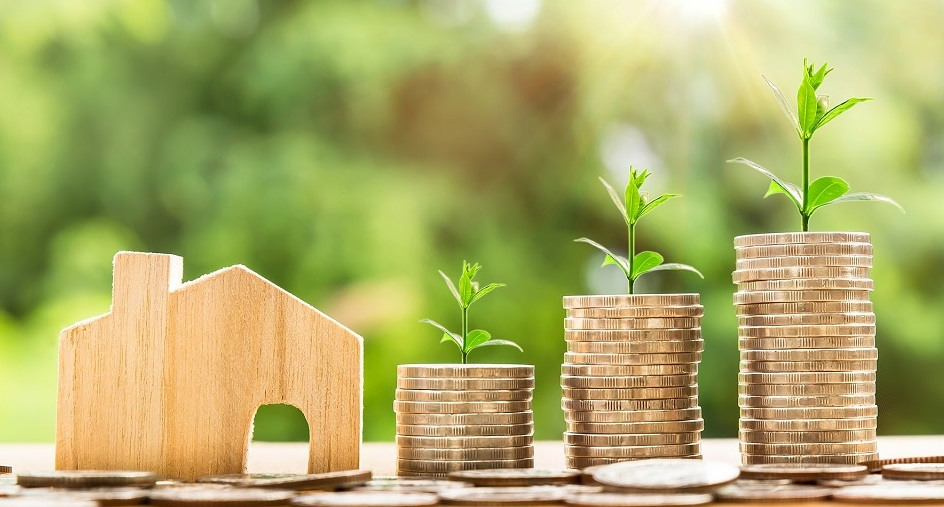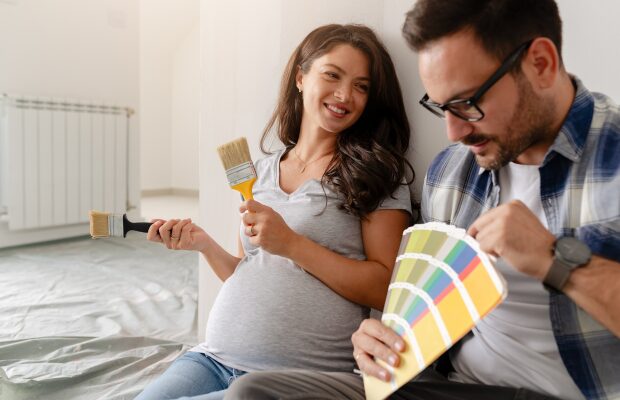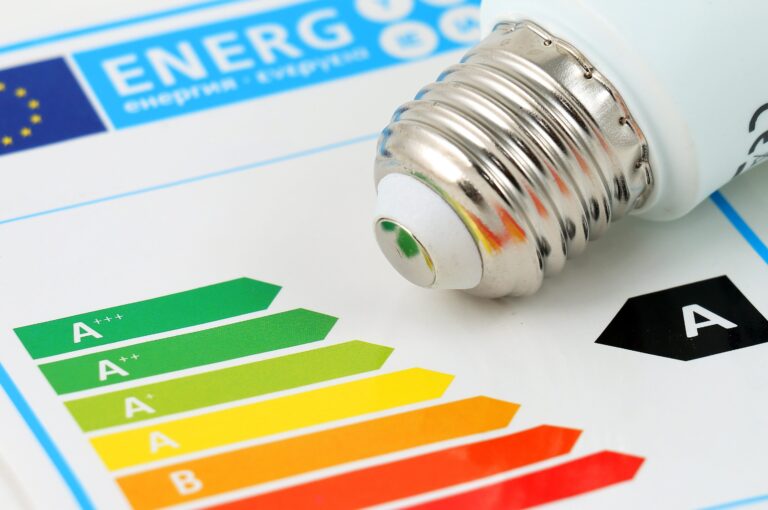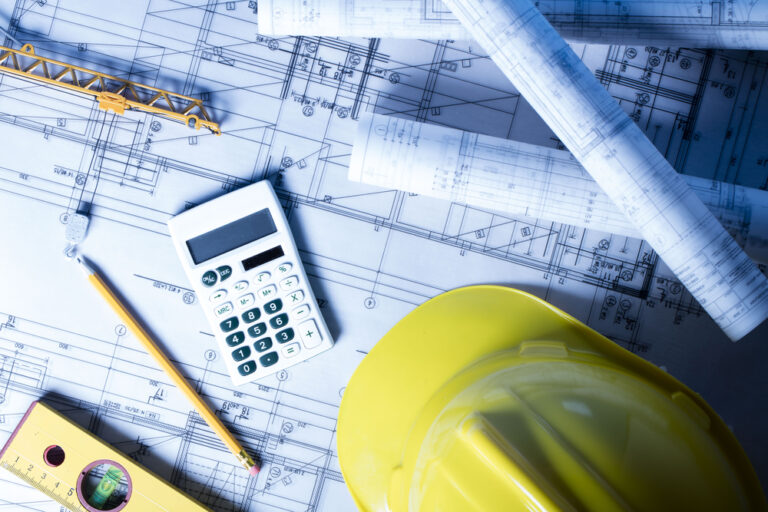Adding value to your home can help you take the next step on your property journey when you come to sell.
Major improvements that directly benefit your potential buyers will always add the most value, but these also require more up-front investment.
But it’s also possible to boost your home’s value on a budget, and in this guide, we’ll show exactly how you can do it.
Which home improvements add the most value?
Home improvements that add space to your home generally add the most value – but also require a solid budget, too.
If you’re looking to add substantial value and have the budget to undertake major work, you could consider a range of additions. Before you undertake any work, read our guide to what to consider before you begin home renovations.
1. Adding an extension
Extensions are the most common way property owners add value to their homes.
Ground-floor extensions to create a large, open-plan kitchen and dining space are extremely popular, with buyers often wowed by a real ‘heart’ of the home.
Possible extension options you could consider include:
- A rear, single-storey extension to create an open plan kitchen-diner
- A side extension to expand the size of your existing kitchen
- A two-storey side extension that adds an additional room on the first floor, as well as a larger downstairs space
Many extension projects can be completed without the need for planning permission, but always check with your local planning department.
Average cost: £45,000
Potential value added: 10-15%
2. Converting your loft
Loft conversions are a superb way to add additional living space to your home – especially in cities where side and rear extension space is often at a premium.
Most loft conversions can be done under permitted development and won’t require planning permission, but if your property is connected to another, you may require a party wall agreement.
Types of loft conversion you could consider include:
- A roof light conversion – cost effective and simple
- A dormer conversion – suitable for most homes with sloping roofs
- Hip to gable conversion – only works on detached or semi-detached homes
- Mansard conversion – alters the angle of the roof slope to almost vertical
Average cost: £40,000 – £100,000
Potential value added: 15-30%
For more information, read our guide on adding a loft conversion.
3. A garage conversion
Before embarking on a garage conversion, consider how potential buyers may require the space a garage provides for storage or car parking.
If converting your garage is an option, you should then think about what you want it to become.
You could consider:
- A games or cinema room
- An annexe that is used as a guest space
- A space that could be rented out
Like extensions and loft conversions, most garage conversions can be completed under permitted development, but you will need to comply with building regulations.
Average cost: £5,000 – £10,000
Potential value added: 10-15%
4. A new kitchen
A modern and functional kitchen space is always high on buyer wish lists and can really make your home stand out.
If you don’t have the budget or space for a kitchen extension, improving or updating your existing space can still add value to your home.
However, you should carefully consider how much you spend on a new kitchen and appliances, fixtures, and fittings as it’s possible to spend more than you recoup in added value. For more tips, read our guide on the mistakes to avoid with kitchen renovations.
Average cost: £5,000 – £8,000
Potential value added: 2-5%
5. Adding an additional bathroom
If your home is lacking an additional bathroom, adding one can add significant value.
Consider carefully if you have the space to do this, however, and think hard if you’re taking space from another area of your home to create a new bathroom.
You could consider:
- Adding a new bathroom to a small spare bedroom
- Creating a cloakroom under your stairs
- Upgrading an existing family bathroom
Average cost: £5,000 – £15,000
Potential value added: 3-6%
Home improvements that don’t always add value
There are many home improvements that can boost your home’s value – but there are also a number that often won’t, including:
- Adding a swimming pool
- Building a wine cellar
- Losing a bedroom in favour of a walk-in wardrobe
- Investing in high end appliances
- Using expensive wallpaper and paints
- Improving a property on a street with a ceiling price
What is the cheapest way to add value to your home?
Some of the most cost-effective ways to add value to your home include:
1. Improve your property’s kerb appeal
First-impressions are everything when it comes to selling your home – and not just when it comes to buyers.
Estate agents arriving for a valuation will be just as guided by your property’s kerb appeal as potential buyers, so it pays to ensure your home is looking great from the pavement.
Depending on your budget, adding a lick of paint to your property’s exterior, or jet washing the brick work can make a huge difference to those vital first impressions.
And don’t forget the gardens.
Cut back trees and bushes and mow the lawn after removing leaves and power wash any paths or the driveway.
“The quickest and easiest way to add value to your home is to boost its kerb appeal,” advises Rob Smith, Managing Director of Whitegates.
“Think about tidying up your front garden and adding some colour.
“A lick of paint on your front door or even replacing it completely can help you to stand out on your street, going a long way for your home’s value.”
2. Protect your property from damp
Damp is something all buyers will look out for when on a viewing and it can dramatically reduce the value of your home.
Take steps to protect your property from damp by:
- Having guttering and downpipes regularly cleaned out
- Regularly inspecting all external pipework and roofing to check for damage
- Having damaged roof tiles or pipework replaced if needed
3. Make your home feel bigger
Buyers will always be drawn to a property that feels light and airy against another that is dark and cramped.
To make your home brighter and appear larger, you could consider:
- Cleaning your windows regularly to increase natural light
- Adding lamps to dark corners
- Reducing clutter and large items of furniture to create space
- Redecorating to light, neutral tones that reflect light rather than absorb it
- Removing net curtains
4. Lift your décor by painting
The key to making your property more appealing to buyers is to allow them to visualise themselves living there.
Properties that are too personalised can often be off-putting for buyers and they’re more likely to offer less if they can see lots of decorative work is required.
For a small spend, buy a few pots of neutral paint, and spend some time getting a perfect finish.
Not only will it allow your buyers to view your home as their own, but it may also mean they don’t have to decorate which will certainly make your property stand out from the crowd and increase its value.
5. Give your home a deep clean
A home that appears unclean will also appear unloved and this can have a hugely negative affect on its value.
Worn, dirty carpets, damaged flooring, scuffed walls, and lots of grime in bathrooms and the kitchen will mean a lot of work for a potential buyer.
To undertake a deep clean at your home, it’s always best to bring in a professional company who will have the expertise and equipment to restore your home to its sparkling best.
6. Make energy saving improvements
A property’s energy efficiency rating is hugely important to buyers and homes which are cheaper to run can sell for more.
The first step is to look at your property’s Energy Performance Certificate (EPC) which shows how energy efficient it is and suggests improvements you could make.
Cost-effective energy improvements include:
- Installing energy efficient lightbulbs throughout your home
- Improving your loft’s insulation
- Draught proofing doors and windows
- Insulating pipes and adding a jacket to your cylinder
For more tips, read our guide on how to improve your EPC rating.
7. Add more security
Making your home safe and secure can make it more appealing to buyers.
Low to medium cost security steps you can take include:
- Adding security lights to your property’s front and rear
- Improving window and door locks
- Adding a CCTV camera
- Adding a burglar alarm system
For more advice, read our guide on keeping your home safe.
8. Improve your tech and connectivity
Modern buyers expect a certain level of technology and good connectivity in properties they view.
To make your home even more appealing to tech-savvy buyers, you could consider:
- Upgrading sockets to those with USB charging slots
- Adding an app-based heating system or video doorbell
- Including smart plugs with your property
- Adding smart light bulbs
9. Spruce up your existing kitchen
If your budget doesn’t stretch to building an extension or upgraded kitchen, you can still get the best from what you have with some simple, cheap improvements.
You could consider:
- Replacing your kitchen sink for a new one
- Upgrading your taps
- Replacing your cupboard door handles with more modern fittings
- Painting your cupboard doors
- Redecorating your kitchen with a fresh lick of paint
10. Get planning permission
Even if you’re not planning major work to add value to your home, simply getting planning permission can help that value shoot up.
Planning permission can be complex and time-consuming, so by obtaining it before you sell, you’ll be saving a potential buyer all that hassle.
A planning application in England will cost around £170, but it could add thousands to the value of your home when you come to sell.




